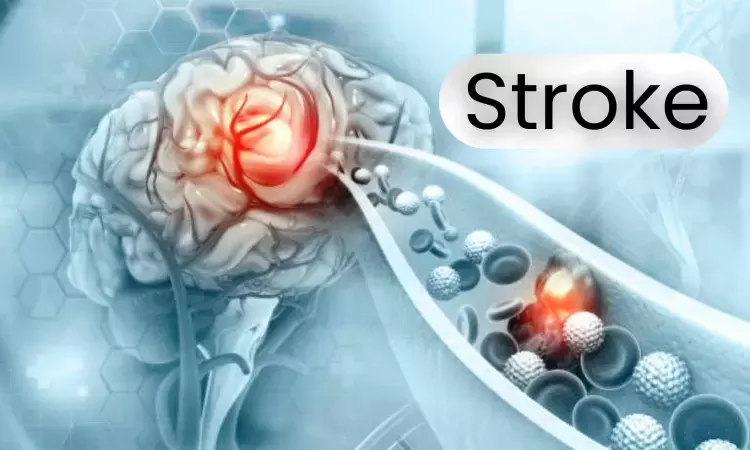- Home
- Medical news & Guidelines
- Anesthesiology
- Cardiology and CTVS
- Critical Care
- Dentistry
- Dermatology
- Diabetes and Endocrinology
- ENT
- Gastroenterology
- Medicine
- Nephrology
- Neurology
- Obstretics-Gynaecology
- Oncology
- Ophthalmology
- Orthopaedics
- Pediatrics-Neonatology
- Psychiatry
- Pulmonology
- Radiology
- Surgery
- Urology
- Laboratory Medicine
- Diet
- Nursing
- Paramedical
- Physiotherapy
- Health news
- Fact Check
- Bone Health Fact Check
- Brain Health Fact Check
- Cancer Related Fact Check
- Child Care Fact Check
- Dental and oral health fact check
- Diabetes and metabolic health fact check
- Diet and Nutrition Fact Check
- Eye and ENT Care Fact Check
- Fitness fact check
- Gut health fact check
- Heart health fact check
- Kidney health fact check
- Medical education fact check
- Men's health fact check
- Respiratory fact check
- Skin and hair care fact check
- Vaccine and Immunization fact check
- Women's health fact check
- AYUSH
- State News
- Andaman and Nicobar Islands
- Andhra Pradesh
- Arunachal Pradesh
- Assam
- Bihar
- Chandigarh
- Chattisgarh
- Dadra and Nagar Haveli
- Daman and Diu
- Delhi
- Goa
- Gujarat
- Haryana
- Himachal Pradesh
- Jammu & Kashmir
- Jharkhand
- Karnataka
- Kerala
- Ladakh
- Lakshadweep
- Madhya Pradesh
- Maharashtra
- Manipur
- Meghalaya
- Mizoram
- Nagaland
- Odisha
- Puducherry
- Punjab
- Rajasthan
- Sikkim
- Tamil Nadu
- Telangana
- Tripura
- Uttar Pradesh
- Uttrakhand
- West Bengal
- Medical Education
- Industry
Admission hyponatremia may independently predict unfavorable postreperfusion outcomes

A recent study found the impact of hyponatremia (plasma sodium <136 mmol/L) on patients undergoing intravenous thrombolysis (IVT) and/or endovascular thrombectomy (EVT) for acute ischemic stroke. The study revealed that Hyponatremia is associated with unfavorable outcomes after reperfusion treatment in acute ischemic stroke.
The findings were published in the European Journal of Neurology.
This comprehensive analysis encompassed data from Isala Hospital in the Netherlands of 680 patients treated in 2019 and 2020, revealed that hyponatremia was a common occurrence, with 14% of patients presenting with low sodium levels on admission. The study explored the association between hyponatremia and postreperfusion outcomes, focusing on factors such as modified Rankin Scale (mRS) scores at 3 months, in-hospital mortality, symptomatic intracranial hemorrhage, infarct core, and penumbra volumes.
The findings unveiled a significant link between hyponatremia and adverse outcomes. Patients with low sodium levels experienced a 76% increased odds of having a worse mRS score at the 3-month follow-up, and a notable 139% increased odds of in-hospital mortality. While hyponatremia did not show a direct correlation with symptomatic intracranial hemorrhage, it was associated with a larger infarct core and a higher core-to-penumbra ratio.
The study highlighted the importance of these findings that indicate that admission hyponatremia is an independent factor predicting unfavorable postreperfusion outcomes. This raises crucial questions about the potential impact of correcting hyponatremia on the prognosis of stroke patients.
Future research is required to delve deeper into the options of correcting hyponatremia and how it could be a viable intervention to improve outcomes for stroke patients treated with IVT and/or EVT. As stroke management evolves, this investigation adds a critical input to optimize the care strategies for acute ischemic stroke and also emphasize the significance of addressing even seemingly unrelated factors for better patient outcomes.
Reference:
Pelouto, A., Reimer, J., Hoorn, E. J., Zandbergen, A. A. M., & den Hertog, H. M. (2023). Hyponatremia is associated with unfavorable outcomes after reperfusion treatment in acute ischemic stroke. In European Journal of Neurology. Wiley. https://doi.org/10.1111/ene.16156
Neuroscience Masters graduate
Jacinthlyn Sylvia, a Neuroscience Master's graduate from Chennai has worked extensively in deciphering the neurobiology of cognition and motor control in aging. She also has spread-out exposure to Neurosurgery from her Bachelor’s. She is currently involved in active Neuro-Oncology research. She is an upcoming neuroscientist with a fiery passion for writing. Her news cover at Medical Dialogues feature recent discoveries and updates from the healthcare and biomedical research fields. She can be reached at editorial@medicaldialogues.in
Dr Kamal Kant Kohli-MBBS, DTCD- a chest specialist with more than 30 years of practice and a flair for writing clinical articles, Dr Kamal Kant Kohli joined Medical Dialogues as a Chief Editor of Medical News. Besides writing articles, as an editor, he proofreads and verifies all the medical content published on Medical Dialogues including those coming from journals, studies,medical conferences,guidelines etc. Email: drkohli@medicaldialogues.in. Contact no. 011-43720751


